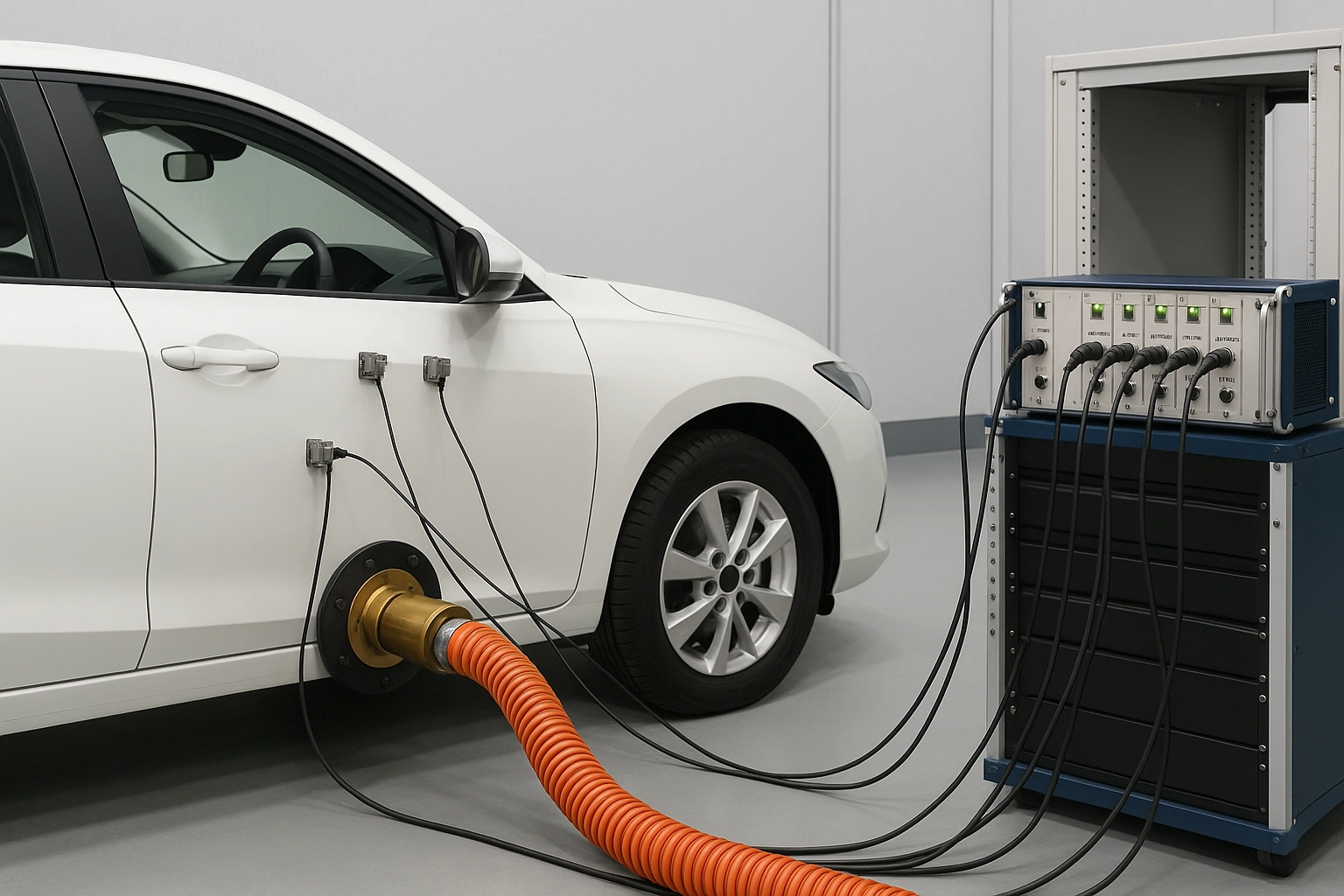JIS D0203 Water Resistance Buzz and NVH Testing
The JIS D0203 standard is a crucial guideline for manufacturers in the automotive sector, particularly for those involved in noise, vibration, and harshness (NVH) testing. This test evaluates the water resistance buzz characteristics of components within vehicles. Understanding the nuances of this service requires an examination of its application, benefits, and international recognition.
The JIS D0203 standard is used to assess the resistance of materials to the effects of moisture, especially in environments where water exposure is a concern. This test is particularly important for components that are exposed to environmental conditions during vehicle operation or maintenance. The process involves subjecting specimens to a controlled environment with varying levels of humidity and temperature cycles.
During testing, the specimen undergoes multiple cycles of wetting and drying under specified conditions. The goal is to determine how well the material can withstand these changes without compromising its structural integrity or functional performance. This type of testing is essential for ensuring that critical components continue to operate efficiently even in harsh environments.
The JIS D0203 standard provides specific criteria for conducting this test, including details on specimen preparation, testing procedures, and evaluation methods. Compliance with these standards ensures consistent quality across different manufacturers and regions, promoting reliability and safety in automotive products.
To conduct the JIS D0203 test effectively, specialized equipment is required to simulate real-world conditions accurately. This includes climate chambers capable of maintaining precise temperature and humidity levels throughout the testing process. Additionally, sensors and monitoring systems help track changes in the specimen over time, providing detailed data for analysis.
Once the tests are completed, comprehensive reports are generated detailing each step of the procedure along with results obtained from various measurements taken during the test cycles. These reports serve as valuable tools for quality assurance teams to identify areas needing improvement or optimization within their production processes.
Applied Standards
| Standard Name | Description |
|---|---|
| JIS D0203 | This standard specifies the method for evaluating water resistance buzz characteristics of components in vehicles. |
| ISO 16875-3 | Aims at measuring noise, vibration, and harshness (NVH) parameters using a sound level meter. |
| ASTM G16 | Describes the procedure for cyclic wetting and drying of materials to determine their resistance to moisture damage. |
| IEC 60252-34 | Provides guidelines on sound intensity measurement which can be applied in conjunction with JIS D0203 during combined tests. |
The combination of these standards ensures that the testing process adheres to internationally recognized protocols, enhancing credibility and reliability across different markets. By following JIS D0203 alongside other relevant standards like ISO 16875-3, ASTM G16, and IEC 60252-34, manufacturers can ensure their products meet stringent quality standards.
For instance, when testing components such as door panels or seats, the JIS D0203 standard allows for precise determination of how these parts perform under varying humidity conditions. This information is invaluable not only for improving product durability but also for enhancing overall customer satisfaction by ensuring that vehicles remain functional and comfortable regardless of environmental factors.
Benefits
- Enhanced Product Durability: By evaluating water resistance buzz characteristics, manufacturers can identify weak points in their designs early on, allowing them to make necessary adjustments before product launch.
- Improved Customer Satisfaction: Ensuring that components function correctly even in harsh environments leads to higher customer satisfaction rates as users experience fewer issues with their vehicles over time.
- Increased Market Competitiveness: Compliance with JIS D0203 and other relevant standards demonstrates a commitment to quality, making companies more attractive to potential customers worldwide.
- Enhanced Safety Standards: Properly tested materials contribute significantly towards maintaining safe driving conditions by preventing failures due to environmental exposure.
The benefits extend beyond just individual products; they also impact the entire industry by setting higher benchmarks for all participants. Through rigorous testing processes like those outlined in JIS D0203, automotive manufacturers can improve their reputation among consumers while staying ahead of competitors who may not adhere to such stringent requirements.
International Acceptance and Recognition
- JIS D0203 is widely accepted in Japan and has gained recognition globally due to its robustness and accuracy.
- The standard has been adopted by several international organizations, including the International Organization for Standardization (ISO).
- Many countries around the world have incorporated JIS D0203 into their national standards, further emphasizing its importance within the automotive sector.
- A growing number of manufacturers across various regions use this standard as part of their quality assurance programs to ensure consistent product performance worldwide.
The widespread adoption of JIS D0203 reflects its significance in promoting uniformity and reliability across different markets. Its international acceptance ensures that products tested according to these guidelines will perform consistently regardless of where they are manufactured or sold.





